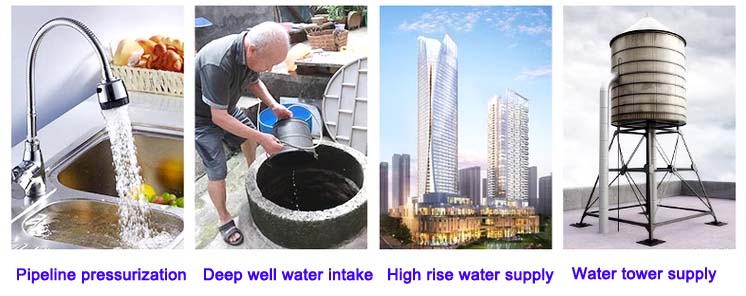English
- Afrikaans
- Albanian
- Amharic
- Arabic
- Armenian
- Azerbaijani
- Basque
- Belarusian
- Bengali
- Bosnian
- Bulgarian
- Catalan
- Cebuano
- Corsican
- Croatian
- Czech
- Danish
- Dutch
- English
- Esperanto
- Estonian
- Finnish
- French
- Frisian
- Galician
- Georgian
- German
- Greek
- Gujarati
- Haitian Creole
- hausa
- hawaiian
- Hebrew
- Hindi
- Miao
- Hungarian
- Icelandic
- igbo
- Indonesian
- irish
- Italian
- Japanese
- Javanese
- Kannada
- kazakh
- Khmer
- Rwandese
- Korean
- Kurdish
- Kyrgyz
- Lao
- Latin
- Latvian
- Lithuanian
- Luxembourgish
- Macedonian
- Malgashi
- Malay
- Malayalam
- Maltese
- Maori
- Marathi
- Mongolian
- Myanmar
- Nepali
- Norwegian
- Norwegian
- Occitan
- Pashto
- Persian
- Polish
- Portuguese
- Punjabi
- Romanian
- Russian
- Samoan
- Scottish Gaelic
- Serbian
- Sesotho
- Shona
- Sindhi
- Sinhala
- Slovak
- Slovenian
- Somali
- Spanish
- Sundanese
- Swahili
- Swedish
- Tagalog
- Tajik
- Tamil
- Tatar
- Telugu
- Thai
- Turkish
- Turkmen
- Ukrainian
- Urdu
- Uighur
- Uzbek
- Vietnamese
- Welsh
- Bantu
- Yiddish
- Yoruba
- Zulu
Telephone: +86 13120555503
Email: frank@cypump.com
Nov . 28, 2024 00:04 Back to list
Chemical Pump Solutions for Industrial Applications and Process Efficiency Improvements
Industrial Chemical Pumps A Critical Component in Manufacturing Processes
Industrial chemical pumps play a pivotal role in various manufacturing processes, facilitating the efficient movement of fluids essential for production. These pumps are specifically designed to handle corrosive, viscous, or hazardous materials, making them indispensable in industries such as chemical processing, petrochemicals, pharmaceuticals, and water treatment. In this article, we will explore the significance of industrial chemical pumps, their types, and their impact on operational efficiency and safety.
Importance of Industrial Chemical Pumps
Chemical manufacturing involves the handling of a wide range of materials, many of which are abrasive, corrosive, or toxic. The primary function of industrial chemical pumps is to transfer these fluids from one location to another, ensuring a continuous flow necessary for uninterrupted production. Their importance cannot be overstated, as any failure in the pumping system can lead to production downtime, increased operational costs, and potential environmental hazards.
Moreover, the right pump can enhance the efficiency of the manufacturing process. By selecting pumps that are tailored to the specific properties of the chemicals being handled, businesses can optimize flow rates, minimize energy consumption, and reduce wear and tear on equipment. This not only extends the lifespan of the pumps but also contributes to overall sustainability goals by lowering the carbon footprint associated with energy use.
Types of Industrial Chemical Pumps
There are several types of pumps commonly used in the chemical industry, each with its own advantages suited to different applications.
1. Centrifugal Pumps These pumps utilize rotational energy to move fluids. They are ideal for pumping low-viscosity fluids, such as water or light oils, and are widely used in various chemical applications. Their simple design allows for easy maintenance and efficient operation, making them a popular choice.
industrial chemical pumps

2. Diaphragm Pumps Known for their versatility, diaphragm pumps can handle a range of fluids, including corrosive chemicals and slurries. They operate by using a flexible diaphragm to create a vacuum that draws the fluid into the pump chamber. These pumps are particularly favored for their ability to operate dry and for their leak-free design, which enhances safety.
3. Gear Pumps These pumps are suitable for high-viscosity liquids and offer precise flow control. They operate by moving fluid through gears, which makes them ideal for applications involving thick chemical compounds or oils.
4. Peristaltic Pumps These pumps work by compressing a flexible tube, pushing the fluid through the tube in a controlled manner. They are ideal for metering applications and can handle slurries, viscous liquids, and shear-sensitive fluids, making them a preferred option in pharmaceuticals and food industries.
Considerations for Selecting Chemical Pumps
When selecting industrial chemical pumps, several factors must be considered to ensure optimal performance and safety. The chemical compatibility of the pump materials with the fluids being handled is crucial. Using inappropriate materials can lead to degradation, leaks, and ultimately pump failure.
Flow rate and pressure requirements are also critical; understanding the system's needs helps in selecting pumps that can deliver the desired flow without overexerting themselves. Additionally, maintenance and ease of serviceability should be considered, as routine maintenance is necessary to prolong the life of the pump and to ensure efficient operation.
Conclusion
Industrial chemical pumps are more than just mechanical devices; they are integral components that impact the safety, efficiency, and environmental footprint of manufacturing processes. Understanding the types of pumps available and considering the unique requirements of chemical handling applications enables industries to choose the right pumps that not only enhance productivity but also uphold safety standards. As technology continues to evolve, the future of industrial chemical pumping promises even greater efficiency and reliability, paving the way for more sustainable manufacturing practices.
-
ISG Series Vertical Pipeline Pump - Chi Yuan Pumps Co., LTD.|High Efficiency, Energy Saving, Low Noise
NewsJul.30,2025
-
ISG Series Vertical Pipeline Pump- Chi Yuan Pumps|High Efficiency&Low Noise
NewsJul.30,2025
-
ISG Series Vertical Pipeline Pump-Chi Yuan Pumps Co., LTD.|High Efficiency&Energy Conservation
NewsJul.30,2025
-
ISG Series Vertical Pipeline Pump - Chi Yuan Pumps Co., LTD.|Advanced Hydraulic Design&Energy-Efficient Solutions
NewsJul.30,2025
-
ISG Series Vertical Pipeline Pump - Chi Yuan Pumps Co., LTD.
NewsJul.30,2025
-
ISG Series Vertical Pipeline Pump - Chi Yuan Pumps Co., LTD.|energy-efficient fluid handling&industrial durability
NewsJul.30,2025










